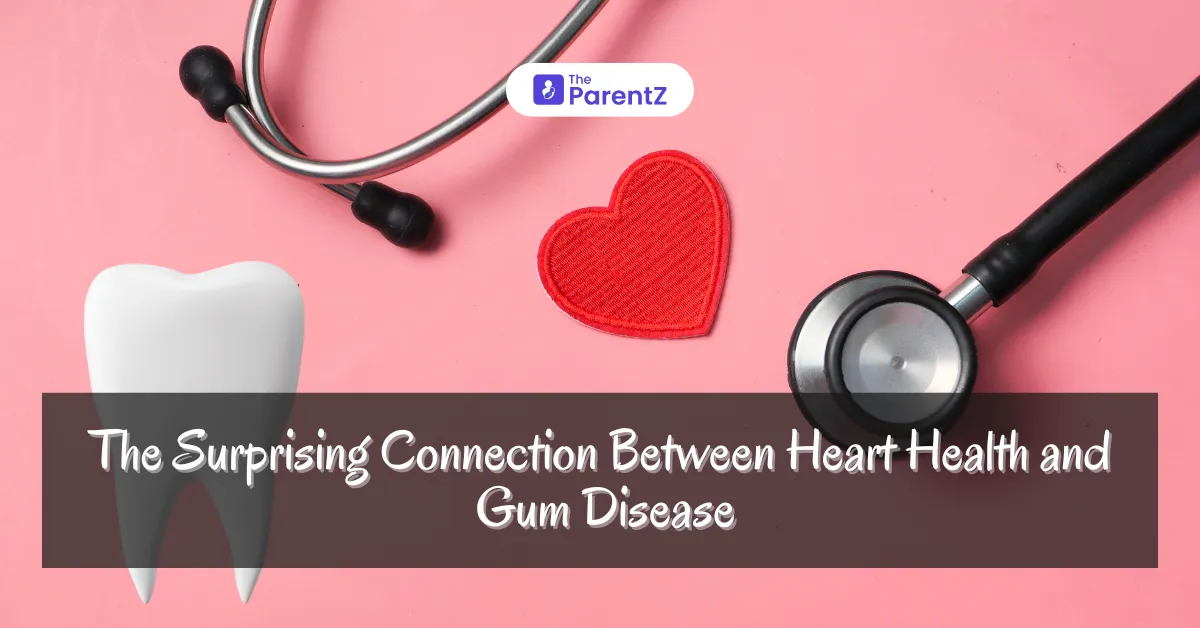Heart disease and gum disease are two major health concerns worldwide, and recent studies suggest a significant relationship between the two. The health of your gums can have a direct impact on your heart, making oral hygiene not just a dental concern but also a critical factor in cardiovascular health.
What Are Gum Diseases?
Gum diseases, or periodontal diseases, are inflammatory conditions affecting the tissues surrounding the teeth. They are caused primarily by bacterial plaque buildup.
• Gingivitis: The mildest form, characterized by red, swollen gums that may bleed during brushing.
• Periodontitis: A more severe stage where the infection spreads deeper, causing gum recession, bone loss, and potentially tooth loss.
Risk Factors for Gum Disease
• Poor oral hygiene
• Smoking or tobacco use
• Uncontrolled diabetes
• Genetic predisposition
• Stress
• Hormonal changes, such as during pregnancy or menopause
What Are Heart Diseases?
Heart diseases are a broad category of conditions affecting the heart’s structure and function. Common types include:
1. Coronary Artery Disease (CAD): Plaque buildup in the coronary arteries, leading to reduced blood flow.
2. Arrhythmias: Irregular heartbeats.
3. Heart Failure: The heart’s inability to pump blood efficiently.
4. Atherosclerosis: Hardening and narrowing of arteries due to plaque buildup.
Risk Factors for Heart Disease
• High blood pressure
• High cholesterol
• Diabetes
• Obesity
• Smoking
• Sedentary lifestyle
• Family history of heart disease
• Aging
The Link Between Gum Disease and Heart Disease
Research indicates that people with gum disease are at a higher risk of developing heart disease. The connection lies in systemic inflammation and bacterial migration.
1. Inflammation: Gum disease triggers chronic inflammation, releasing inflammatory markers such as C-reactive protein (CRP), which are also implicated in heart disease.
2. Bacterial Spread: Oral bacteria from diseased gums can enter the bloodstream, attach to arterial walls, and contribute to plaque formation, increasing the risk of atherosclerosis.
3. Shared Risk Factors: Smoking, diabetes, and poor diet are common risk factors for both conditions, amplifying their interlinking impact.
Prevalence and Incidence
• According to a study in the Journal of Clinical Periodontology, individuals with severe periodontitis are 20-30% more likely to develop cardiovascular diseases.
• A PubMed review highlighted that nearly 50% of adults with periodontitis showed systemic markers of inflammation linked to heart disease.
• Heart disease remains the leading cause of death globally, while periodontal disease affects nearly 50% of adults over 30, emphasizing the need for integrated healthcare approaches.
Diseases Most Commonly Interlinked
Certain heart and gum diseases are closely related:
1. Atherosclerosis and Periodontitis: Both involve chronic inflammation and plaque formation.
2. Endocarditis: Oral bacteria can infect the heart valves, especially in individuals with pre-existing heart conditions.
3. Coronary Artery Disease (CAD): Studies show that untreated periodontitis significantly increases the risk of CAD.
Alarming Trends and Clinical Features
• Age Groups Affected:
• Gum disease is prevalent in adults over 30, with severity increasing after 50.
• Heart disease risk rises after age 40 but can occur earlier due to lifestyle factors.
• Clinical Features:
• Gum Disease: Bleeding gums, persistent bad breath, loose teeth, gum recession, and swollen gums.
• Heart Disease: Chest pain, shortness of breath, fatigue, and palpitations.
Prevention Strategies
For Gum Health
1. Oral Hygiene: Brush twice daily, floss regularly, and use antimicrobial mouthwash.
2. Regular Dental Checkups: Visit your dentist every six months for cleanings and early detection of gum disease.
3. Healthy Diet: Reduce sugar intake and eat foods rich in calcium and vitamins.
For Heart Health
1. Lifestyle Modifications: Maintain a balanced diet, exercise regularly, and avoid smoking.
2. Blood Pressure and Cholesterol Management: Regular monitoring and medications if necessary.
3. Routine Health Screenings: Annual checkups to detect risk factors early.
When to See a Specialist
• Dentist: Persistent gum bleeding, swelling, or bad breath that doesn’t improve with routine care.
• Cardiologist: Chest pain, palpitations, or shortness of breath, especially if you have risk factors for heart disease.
How to Maintain Heart and Gum Health
1. Integrated Care: Work with both your dentist and cardiologist to manage systemic health.
2. Early Diagnosis: Address signs of gum disease promptly to prevent complications that could impact heart health.
3. Focus on Inflammation: Anti-inflammatory diets and therapies can reduce risks for both conditions.
4. Education: Stay informed about the link between oral and systemic health.
Conclusion
The connection between gum disease and heart health is a wake-up call to take oral hygiene seriously. By addressing gum disease early and maintaining a heart-healthy lifestyle, you can significantly reduce the risks of cardiovascular complications. Remember, a healthy mouth leads to a healthier heart!
References
1. Preshaw PM, Alba AL, Herrera D, et al. Periodontitis and cardiovascular disease: Consensus report. Journal of Clinical Periodontology.
2. Tonetti MS, Van Dyke TE. Periodontitis and atherosclerotic cardiovascular disease: Consensus report of the joint EFP/AAP workshop. PubMed.
3. Lockhart PB, Bolger AF, Papapanou PN, et al. Periodontal disease and atherosclerotic vascular disease: Does the evidence support an independent association? Circulation Journal.








Be the first one to comment on this story.